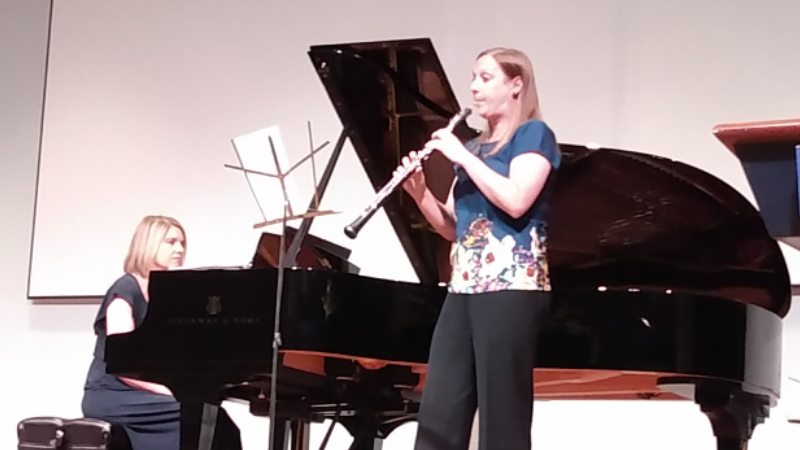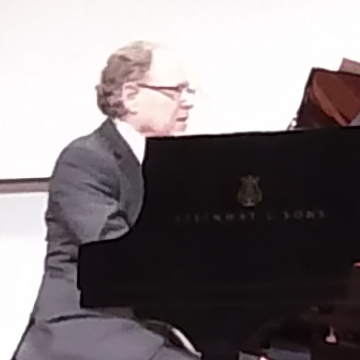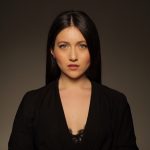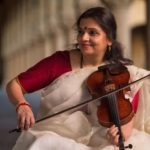April 23, 2023
McElreath Hall, Woodruff Auditorium
Atlanta History Center
Atlanta, GA
“A History of Classical Music in Atlanta”
Christina Smith, flute; Emily Brebach, oboe; Charae Krueger, cello; Elizabeth Pridgen, piano; William Ransom, piano.
Alfredo BARILI: Cradle Song
Charles KNOX: Song and Double
Stephen PAULUS: Preludes, Book 1
Charles KNOX: Clouds Are Not Spheres
Mark Gresham | 26 APR 2023
Sunday’s brilliantly sunny afternoon, set the perfect stage for an Atlanta-themed concert of music by Alfredo Barili, Charles Knox, and Stephen Paulus, performed by musicians of the Emory Chamber Music Society of Atlanta in the 398-seat Woodruff Auditorium inside McElreath Hall at the Atlanta History Center.
Alfredo Barili (1854-1935) was an Italian-American pianist, composer, and pedagogue historians regard as Atlanta’s “first professional classical musician.” Born in Florence, Italy, Barili was brought to America in his infancy and taught piano by his father. At age 18, Barili enrolled at the Cologne Conservatory, where he studied piano and composition.
Upon returning to the United States, Barili settled in Atlanta in 1880. After teaching for six years at the Atlanta Female Institute, he founded a private music academy where he taught piano. He also composed what one critic derisively called “perishable salon music” in the manner of the day, yet his most famous piano piece, Cradle Song, Op. 18, was so much in demand that it went through 26 editions.
After introductory remarks by Dr. N. Lee Orr, author of Alfredo Barili and the Rise of Classical Music in Atlanta (1996), pianist William Ransom performed Barili’s brief Cradle Song. It was, as expected, a tuneful and sentimental piece of light romantic charm. Worth noting here that Ransom recorded Cradle Song along with other solo piano pieces and songs on a CD, The Music of Alfredo Barili, 1854 – 1935 (ACA Digital #20071), released in 2000.
But another crucial historical recording of Cardle Song is essential to our story, not mentioned in the concert. During the composer’s lifetime, one of his students, pianist-composer Hugh Hodgson, recorded Cradle Song on a Duo-Art piano roll. Hodgson (1893-1969), a native of Athens, Georgia, was the founding chairman of the music department at the University of Georgia from 1928 to 1960.
Hodgson was the direct historical link between Barili and the next composer on Sunday’s program, Atlanta native Charles Knox (1929-2019), who earned his bachelor’s degree in music at UGA. Knox also knew Hodgson through a group known as Georgia Composers. After getting is master’s and doctorate from Indiana University, and teaching at Mississippi College, Knox returned to Atlanta to teach at Georgia State University for three decades, beginning in in 1965.
Fitting, then, that after Ransom performed Cradle Song, oboist Emily Brebach and pianist Elizabeth Pridgen performed Knox’s Song and Double (1984). In the Baroque dance suite, a dance movement was sometimes immediately followed by a single variation called the “double,” hence the work’s title. Beginning with an introduction for the oboe alone, the “song” follows. Varied melodic segments receive increasingly more challenging treatments for both instruments, then the song returns, closing with a quietly harmonized version of the introduction.

Pianist Elizabeth Pridgen and oboist Emily Brebach perform “Song and Double” by Charles Knox. (credit: Mark Gresham)
Composer Stephen Paulus was born in Summit, New Jersey, but his family moved to Minnesota when he was two years old, and he kept permanent residence there until he died in 2014 at age 65.
Despite that, many local musicians regard Paulus as an “Atlanta” composer because of his significant musical presence here, starting in 1988 when he was named composer-in-residence at the Atlanta Symphony Orchestra. He held that post for three seasons, until 1991, but would continue to be an influence in its wake, being commissioned and performed by Atlanta musicians and institutions.

Pianist William Ransom performs “Preludes, Book I” by Stephen Paulus. (credit: Mark Gresham)
One of several pieces composed by Paulus for pianist William Ransom, Preludes, Book I, was commissioned by the Candler Concerts Committee at Emory University, and premiered in Glenn Memorial Auditorium in 1994. Ransom has since played them in Europe, Asia, and South America but has yet to record them. There are five Preludes in the set: “Spirited,” “Mysterious,” “Sprightly,” “Serene,” and “Rollicking.” The odd-numbered Preludes are the more energized, angular, and forceful, with the two even-numbers ones more reserved but hardly arcadian in temperament. Together the five make for a virtuoso showpiece with many technical challenges for the pianist to tackle.
For the final work on the program, flutist Christina Smith, cellist Charae Krueger, and pianist Elizabeth Pridgen performed another work by Knox: Clouds Are Not Spheres, which he composed in 1994 for Smith and cello-piano duo Dorothy and Cary Lewis.
The title comes from a statement by Benoit Mandelbrot (as quoted in the 1987 book Chaos by James Gleick) about how random shapes can be much more complex than regular geometric forms.
Though involving some mathematical relationships, principally rhythmic ones, the musicality of Clouds Are Not Spheres depends much more upon its subjectively derived melodies and counterpoint. Its single movement can be broadly called a sophisticated sonata form with an introduction, exposition, development, recapitulation, and coda.
Its foundational five-note motive is established immediately, with C♯ as the tonal center. Then, it receives some stretching before the exposition’s frantic entry, followed by a legato second theme on cello, then flute. After a quieter version of the first theme on piano, a passionate melody double in flute and piano leads to a development section with alternating sections of “straight” and “swing” rhythms that increase in tempo with each iteration. These metrically-related tempo changes reveal a different musical character in the same material with each passage, leading to the recapitulation. The music reaches its peak intensity in the brief coda, which firmly concludes in a D♭ tonality — the enharmonic expression of the original C♯ tonality in which the piece began.
The performances of all four pieces on the program were agreeably well-played — but, unfortunately, not recorded. I expected this concert to be short, spanning as it did about an hour, but I would have preferred to have heard more music and less talk. Written program notes about the music and composers (beyond the included performer bios) would have helped facilitate the historical and cultural topic, of which one event like this can only scratch the merest surface. We need more concerts on this theme and should more intently explore Atlanta’s legacy of “classical music” composers and performers. ■
• Full Disclosure: Lux Nova Press publishes the music of Charles Knox.
EXTERNAL LINKS:
- Emory Chamber Music Society of Atlanta: chambermusicsociety.emory.edu
- Emily Brebach: aso.org/artists/detail/emily-brebach
- Charae Krueger: facultyweb.kennesaw.edu/ckruege1/
- Elizabeth Pridgen: lpr.com/lpr_artists/elizabeth-pridgen-piano
- William Ransom: music.emory.edu/home/people/biography/ransom-william.html
- Christina Smith: aso.org/artists/detail/christina-smith
- Atlanta History Center: atlantahistorycenter.com

Read more by Mark Gresham.







.png)